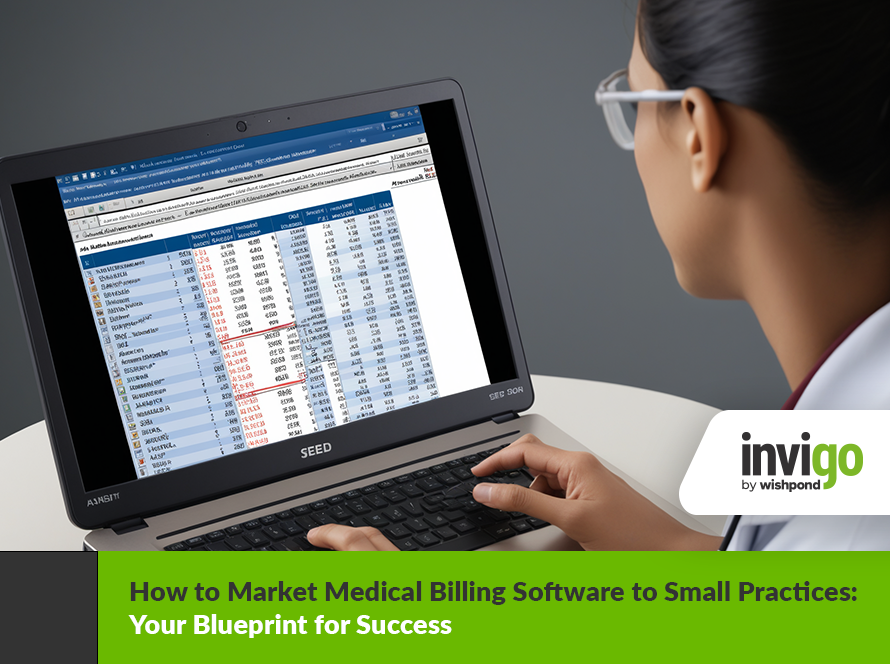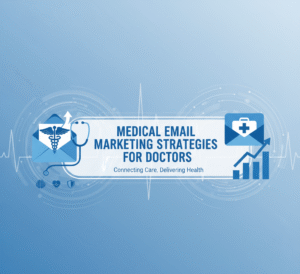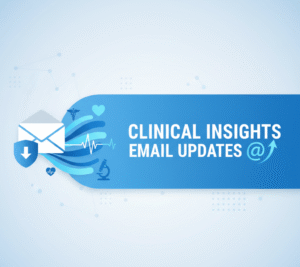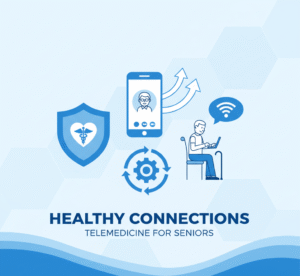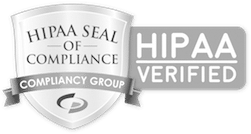“Learn how to effectively market medical billing software to small practices with these essential medical billing software marketing tips.”
Small healthcare practices are the backbone of community health. They offer personalized care and build strong patient relationships. Yet, they often grapple with a maze of administrative challenges. Among these, medical billing stands out as a significant hurdle. Inaccurate or inefficient billing can cripple a practice’s finances, divert precious time from patient care, and even lead to burnout. This is where cutting-edge medical billing software steps in, offering a lifeline of efficiency and accuracy. But how do you effectively reach these busy, often overwhelmed, small practices as a software provider? How do you cut through the noise and demonstrate the real, tangible value your solution brings?
This article dives deep into the strategic world of marketing medical billing software, specifically for small healthcare practices. We’ll explore personalized marketing approaches that resonate with their unique needs, discuss how to leverage powerful digital marketing channels, and emphasize the critical role of dedicated marketing support in driving success in this specialized market. Think of this as your comprehensive guide to connecting with small practices and showing them how your software can transform their operations, freeing them to focus on what matters most: their patients.
Understanding the Small Practice Landscape: More Than Just a Business
Before discussing marketing, we need to understand small healthcare practices. These are not large hospital systems with dedicated IT departments and substantial budgets. Small practices, whether a solo practitioner or a group of a few doctors, often wear many hats. The doctor is not just a clinician; they are also a business owner, a manager, and usually an accidental billing expert.
Their primary focus is always patient care. Administrative tasks, while crucial, are often seen as necessary evils that eat into their clinical time. This mindset is vital to grasp. Any solution you present must demonstrate how it saves them time, reduces their administrative burden, and improves their financial health, all without requiring a steep learning curve or significant upfront investment of time or money.
What Drives Their Decisions?
Small practices make decisions based on a few core principles:
- Time Savings: Can your software automate tasks? Can it reduce the hours spent on manual entry, claim submissions, or follow-ups? This is often their number one pain point.
- Cost Efficiency: They operate on tighter budgets. How will your software improve their revenue cycle? Will it reduce denied claims? Will it accelerate payments? Show them the return on investment (ROI) clearly and quickly.
- Ease of Use: They don’t have a dedicated IT staff. The software must be intuitive, easy to implement, and simple to learn. Complex systems are a non-starter.
- Compliance and Security: Regulatory compliance (like HIPAA) is paramount. They must trust that your software keeps patient data secure and follows all necessary regulations.
- Support: When things go wrong, they need responsive, knowledgeable support. A lack of reliable support is a significant deterrent.
- Integration: How well does your software integrate with their existing Electronic Health Record (EHR) system? Seamless integration is often a key selling point.
You will speak their language and gain attention by addressing these core drivers directly in your marketing messages.
Crafting Your Message: Speaking Directly to Small Practices
Your marketing message cannot be generic. It must be tailored. Avoid industry jargon that doesn’t resonate with their daily struggles. Instead, focus on the benefits, not just the features.
Instead of saying: “Our software has advanced claims scrubbing capabilities.”
Say: “Reduce denied claims by 30% and get paid faster, ensuring a steady cash flow for your practice.”
See the difference? One is technical, the other is a direct solution to a common pain point.
Emphasize Solutions to Specific Problems
Consider common challenges faced by small practices:
- High Denied Claims Rate: Your software can identify errors before submission, leading to fewer denials.
- Slow Payment Cycles: Automated follow-ups and electronic claim submission can accelerate payments.
- Time Spent on Manual Entry: Automation features can free up administrative staff for more patient-facing tasks.
- Lack of Visibility into Financial Performance: Robust reporting can provide insights into revenue and outstanding claims.
- Compliance Concerns: Built-in compliance checks and secure data handling offer peace of mind.
Frame your marketing around these solutions. Each message should be a direct answer to a problem they are facing.
The Digital Frontier: Reaching Small Practices Online
In today’s world, digital marketing is not an option but a necessity. Small practices, like all businesses, turn to the internet for solutions. Your digital presence must be strong, visible, and compelling.
1. Search Engine Optimization (SEO): Be Found When They Search
SEO is the cornerstone of your digital marketing strategy. When a small practice owner or manager types “medical billing software for small practices” into Google, you want your website to be among the first results they see. This isn’t magic; it’s a strategic process.
- Keyword Research: This is your starting point. You need to understand the exact terms small practices use when searching for solutions. Beyond “medical billing software,” consider long-tail keywords like “best medical billing software for solo practitioners,” “affordable medical billing solution for private practice,” or “how to streamline billing for small clinics.” Tools like Google Keyword Planner, Ahrefs, or Semrush can help you uncover these terms.
- On-Page SEO: Once you have your keywords, integrate them naturally into your website content. This includes:
- Page Titles and Meta Descriptions: These snippets appear in search results. Make them compelling and include your target keywords.
- Header Tags (H1, H2, H3): Structure your content with clear headings incorporating keywords.
- Content Quality and Depth: Google prioritizes valuable, comprehensive content. Write detailed blog posts, guides, and landing pages that answer common questions and provide solutions. For example, a blog post titled “Top 10 Medical Billing Software Solutions for Small Practices in 2025” or “Medical Billing Tips and Tricks for Independent Physicians” would be highly relevant.
- Image Optimization: Use descriptive alt text for all images, incorporating keywords where relevant.
- Internal Linking: Link to other relevant pages within your website to improve user navigation and SEO.
- Technical SEO: Ensure your website is technically sound. This includes:
- Mobile-Friendliness: Most people browse on their phones. Your site must be fully responsive.
- Site Speed: A slow website frustrates users and hurts your search rankings. Optimize images, leverage browser caching, and consider a content delivery network (CDN).
- XML Sitemaps: Help search engines crawl and index your site effectively.
- Schema Markup: Implement structured data to help search engines understand the context of your content, leading to richer search results.
- Off-Page SEO (Link Building): Getting other reputable websites to link to yours. This signals to search engines that your site is authoritative and trustworthy.
- Guest Blogging: Write articles for industry publications or healthcare blogs.
- Partnerships: Collaborate with other healthcare technology providers or associations.
- Content Promotion: Share your valuable content widely to encourage natural backlinks.
Remember, SEO is a long-term game. It requires consistent effort and patience. However, its organic traffic is highly valuable and cost-effective over time.
2. Social Media Marketing: Engage Where They Are
While LinkedIn is a professional network often favored by B2B companies, small practice owners and managers may also be on Facebook, Twitter (now X), and Instagram. The key is to be present on platforms where your target audience spends their time and to tailor your content to each platform.
- LinkedIn is ideal for showcasing your expertise, sharing industry insights, and connecting with healthcare professionals.
- Company Page: Create a strong company page with detailed information about your software and services.
- Thought Leadership: Share articles, whitepapers, and case studies about medical billing best practices, compliance, and efficiency.
- Engage in Groups: LinkedIn groups focus on healthcare administration, practice management, and medical billing. Answer questions and offer valuable insights.
- Employee Advocacy: Encourage employees to share your content and engage with industry discussions.
- Facebook & Instagram: While often seen as personal platforms, many small businesses use them for networking and information gathering.
- Educational Content: Share infographics, short videos, and tips related to medical billing. For example, “Medical billing tips and tricks” or “How to avoid common billing errors.”
- Customer Testimonials: Share success stories and video testimonials from satisfied small practices.
- Behind-the-Scenes: Show the human side of your company.
- Paid Social Ads: Target specific demographics and interests within the healthcare community. More on this below.
- Twitter (X): Ideal for real-time updates, quick tips, and engaging in conversations.
- Share Industry News: Curate and share relevant articles and news about healthcare technology and billing.
- Run Polls: Ask questions related to billing challenges or software preferences.
- Respond to Mentions: Engage with users who mention your brand or related keywords.
The goal of social media is not just to sell. It is to build a community, establish your brand as a trusted resource, and nurture relationships. Provide value consistently, and the sales will follow.
3. Paid Search (PPC): Immediate Visibility and Targeted Reach
While SEO builds long-term organic visibility, Paid Search (Pay-Per-Click) offers immediate visibility and highly targeted reach. This is an excellent way to capture demand from users actively searching for medical billing solutions.
- Google Ads: The most prominent platform for paid search.
- Keyword Targeting: Bid on the keywords you identified in your SEO research. Focus on high-intent keywords like “buy medical billing software,” “medical billing software comparison,” or “medical billing services for small practices.”
- Ad Copy: Write compelling ad copy highlighting your unique selling propositions (USPs). Focus on benefits like time savings, increased revenue, and ease of use. Include strong calls to action (CTAs) like “Get a Free Demo,” “Start Your Free Trial,” or “Learn More.”
- Landing Pages: Direct ad traffic to highly relevant, optimized landing pages. The landing page should directly address the user’s search intent and make it easy for them to take the next step.
- Negative Keywords: Exclude irrelevant search terms to avoid wasted ad spend. For example, if you only sell software and not services, add “medical billing jobs” or “medical billing certification” as negative keywords.
- Geographic Targeting: If your software has specific regional benefits or if your support is geographically limited, target your ads to specific locations.
- Remarketing (Retargeting): Show ads to users who have previously visited your website. This is incredibly effective for nurturing leads already familiar with your brand.
- Bing Ads: Don’t overlook Bing. While Google dominates, Bing has a significant user base, particularly among older demographics who might be practice owners. The ad platform is similar to Google Ads, allowing identical targeting strategies.
Paid search provides an immediate boost in visibility and can generate high-quality leads quickly. It requires careful monitoring and optimization to ensure a strong return on investment.
The Power of Dedicated Marketing Support: Your Secret Weapon
Navigating the complexities of digital marketing, especially in a niche market like healthcare, can be overwhelming for software companies. This is where dedicated marketing support, like that offered by Invigo Media, becomes invaluable.
Think about it: You are experts in building and refining medical billing software. You understand the code, the algorithms, and the intricate details of revenue cycle management. But are you equally expert in keyword research, content strategy, social media engagement, and PPC campaign optimization? Probably not. And that’s perfectly fine.
A dedicated medical marketing manager or a specialized agency brings several critical advantages:
- Deep Industry Knowledge: They understand the nuances of the healthcare industry, its regulations, and the unique challenges small practices face. They know the language, the pain points, and the decision-making processes. This allows them to craft messages that truly resonate.
- Marketing Expertise: They specialize in SEO, social media, paid search, content creation, and lead generation. They know what strategies work in healthcare and can implement them effectively.
- Time Savings for You: Outsourcing your marketing efforts frees your internal team to focus on core competencies: software development, customer support, and product innovation.
- Strategic Planning and Execution: A dedicated partner develops a comprehensive marketing strategy tailored to your specific goals and executes it precisely. They track performance, analyze data, and optimize campaigns for better results.
- Cost-Effectiveness: While there’s an investment, it often proves more cost-effective than building an in-house marketing team, especially for specialized functions like medical marketing. You gain access to a team of experts without the overhead of salaries, benefits, and training.
- Access to Advanced Tools and Technologies: Specialized marketing agencies often have access to expensive marketing software and tools that might be prohibitive for individual companies.
- Consistent Brand Messaging: They ensure all your marketing efforts, across different channels, deliver a consistent and compelling brand message, reinforcing your value proposition.
Invigo Media: A Partner in Your Growth
As highlighted, Invigo Media exemplifies the ideal marketing medical billing software partner. Their focus on medical marketing means they truly understand your audience. Solutions like EverGenius™ are designed to automate practice growth, directly addressing the need for efficiency and revenue generation that small practices crave. Their dedicated medical marketing manager services offer the hands-on, expert support you need to drive success.
When you partner with an entity like Invigo Media, you are not just hiring a service but gaining an extension of your team, a strategic partner invested in your success. They will help you:
- Identify Your Ideal Customer: Refining your target audience beyond “small practices” to truly understand their needs and challenges.
- Develop a Compelling Value Proposition: Articulating why your software is the best solution for their problems.
- Build a Robust Digital Presence by Optimizing your website for SEO, creating engaging social media content, and running effective paid ad campaigns.
- Generate Qualified Leads: Attracting practices genuinely interested in and that can benefit from your software.
- Nurture Leads Through the Sales Funnel: Developing content and strategies to move leads from initial interest to conversion.
- Measure and Report on ROI: Providing clear insights into the effectiveness of your marketing efforts.
The value of having a dedicated medical marketing manager cannot be overstated. They bridge your innovative software and the practices that desperately need it.
Beyond Digital: Other Powerful Marketing Avenues
While digital marketing forms the bedrock, don’t neglect other proven strategies.
1. Content Marketing: Educate and Inform
Content is king, especially when marketing a complex solution like medical billing software. Your content should educate, inform, and solve problems.
- Blog Posts: Regularly publish articles on topics relevant to small practices. Think: “Understanding Medicare Part B Billing,” “How to Choose the Right Medical Billing Software,” “Common Medical Billing Mistakes to Avoid,” or “Top 10 Medical Billing Software Features for Small Clinics.”
- Whitepapers and E-books: These offer in-depth guides on specific billing challenges or best practices, which are excellent lead magnets.
- Case Studies: Showcase real-world examples of how your software has helped small practices achieve measurable results (e.g., “How Dr. Smith’s Practice Reduced Denials by 25% with Our Software”).
- Webinars: Host live or pre-recorded webinars on topics like “Optimizing Your Practice’s Revenue Cycle” or “Leveraging Technology for Efficient Billing.”
- Infographics and Videos: Visual content is highly engaging. Create infographics explaining complex billing processes or short videos demonstrating software features.
The goal is to position your brand as a knowledgeable authority in medical billing. Practitioners who trust your expertise are more likely to trust your solution.
2. Demonstrations and Free Trials: Let the Software Speak for Itself
Once you have a prospect’s attention, the best way to convert them is to let them experience your software firsthand.
- Personalized Demos: Offer live, customized demonstrations. During the demo, focus on the specific pain points of that particular practice and show how your software addresses them. Highlight features that are most relevant to their needs.
- Free Trials: A limited-time free trial (e.g., 7 or 14 days) allows practices to explore the software at their own pace. Ensure the trial experience is smooth, with easy onboarding and access to support.
- Interactive Demos/Sandbox Environments: If a full trial isn’t feasible, offer an interactive demo or a “sandbox” environment where users can click around and get a feel for the interface without real data.
The key is to reduce the barrier to entry and allow them to visualize how your software fits into their daily workflow.
3. Testimonials and Case Studies: Social Proof is Powerful
Small practices are looking for solutions that have worked for others like them. Authentic testimonials and detailed case studies are compelling.
- Video Testimonials: Hearing directly from satisfied customers builds immense trust.
- Written Testimonials: Feature these prominently on your website and in marketing materials.
- Detailed Case Studies: Go beyond a simple quote. Describe the practice’s initial challenge, how your software was implemented, and the specific, measurable results achieved.
These success stories provide tangible evidence of your software’s value.
4. Strategic Partnerships: Expanding Your Reach
Collaborating with other businesses that serve small practices can open up new marketing channels.
- EHR/EMR Providers: If your software integrates seamlessly with popular EHR/EMR systems, explore partnership opportunities with those providers. They might feature your software as a recommended billing solution.
- Practice Management Consultants: Consultants who advise small practices often look for reliable software solutions to recommend to their clients.
- Medical Associations and Organizations: Partner with local or national medical associations. They may offer opportunities for sponsorships, webinars, or content contributions.
These partnerships can lead to warm leads and invaluable endorsements.
5. Referral Programs: Leverage Your Existing Customers
Your happiest customers are your best advocates. Implement a referral program that incentivizes existing users to recommend your software to other small practices. Offer discounts, credits, or other valuable rewards for successful referrals. Word-of-mouth remains one of the most trusted forms of marketing.
Measuring Success and Adapting Your Strategy
Marketing is not a “set it and forget it” endeavor. You must continuously monitor your efforts, analyze results, and adapt your strategy based on your learning.
- Key Performance Indicators (KPIs): Track metrics like website traffic, lead generation, conversion rates (from lead to demo, from demo to sale), customer acquisition cost (CAC), and customer lifetime value (CLTV).
- Analytics Tools: Utilize Google Analytics, your CRM, and social media analytics to gain insights into user behavior and campaign performance.
- A/B Testing: Experiment with different ad copy, landing page designs, and call-to-actions to see what resonates best with your audience.
- Customer Feedback: Regularly solicit feedback from your existing customers and lost prospects. What did they like? What could be improved? Why did they choose a competitor? This feedback is invaluable for refining your product and your marketing messages.
By embracing a data-driven approach, you can optimize your marketing spend and ensure you reach the right audience with the right message at the right time.
Conclusion: Empowering Small Practices, Driving Your Growth
Marketing medical billing software to small practices requires a nuanced and personalized approach. It’s not about pushing features; it’s about solving real problems. It’s about demonstrating how your software can free up their time, improve their financial health, and allow them to focus on their patients, the reason they started their practice.
You lay a strong digital foundation by strategically leveraging SEO to be found, engaging on social media to build community, and employing paid search for immediate impact. Moreover, by partnering with dedicated medical marketing experts like Invigo Media, you gain an indispensable ally who truly understands the healthcare landscape and can expertly navigate the marketing complexities on your behalf. They bring solutions like EverGenius™ to life, directly addressing the growth automation needs of small practices.
Remember, every small practice owner seeks to streamline operations and enhance care delivery. Your medical billing software can be the transformative solution they seek. By focusing on their needs, speaking their language, and providing exceptional value through your marketing efforts, you won’t just sell software; you’ll become a trusted partner in their ongoing success, ultimately driving your growth in this vital market.
FAQs
Q1: What are the biggest challenges when marketing medical billing software to small practices?
A1: The biggest challenges include:
- Limited Budgets: Small practices often have tighter financial constraints than larger healthcare organizations. This means your pricing and perceived ROI must be highly compelling.
- Time Constraints: Practice owners and managers are incredibly busy. They have little time for lengthy sales processes or complex software implementations. Your marketing must be concise and demonstrate time savings.
- Resistance to Change: Adopting new software can feel daunting. You need to address concerns about learning curves and disruption to existing workflows.
- Lack of Technical Expertise: Many small practices lack dedicated IT staff, so ease of use and strong customer support are paramount.
- Building Trust: Small practices are wary of solutions that don’t deliver on promises. Demonstrating credibility through testimonials, case studies, and industry expertise is crucial.
Q2: How important is understanding the unique needs of small practices in this marketing strategy?
A2: Understanding the unique needs of small practices is critical. They operate differently from large hospitals or clinics. Their primary focus is patient care, and administrative tasks are often considered necessary. They value affordable, easy-to-use solutions, integrate well with existing systems, and offer reliable support. Marketing messages must address these pain points, emphasizing benefits like time savings, increased revenue, and reduced administrative burden, rather than just listing technical features. A personalized approach that acknowledges their specific challenges will resonate far more than a generic pitch.
Q3: What are the “top 10 medical billing software” features that small practices prioritize?
A3: While a definitive “top 10” can vary, small practices generally prioritize features that directly address their core needs for efficiency and financial health. These often include:
- Intuitive User Interface: Easy to learn and navigate, even for non-technical users.
- Automated Claim Submission: Fast and accurate electronic submission to payers.
- Claim Scrubbing/Error Checking: Identifies and corrects errors before submission to reduce denials.
- Payment Posting Automation: Automatically posts payments from explanation of benefits (EOBs).
- Robust Reporting and Analytics: Provides clear insights into financial performance, outstanding claims, and revenue cycles.
- Patient Statements and Collections: Efficiently generates and sends patient statements and manages collections.
- Integration with EHR/EMR Systems: Seamless data flow with their existing patient records software.
- Secure and HIPAA Compliant: Ensures patient data privacy and meets all regulatory requirements.
- Real-Time Eligibility Verification: Quickly verifies patient insurance coverage before appointments.
- Responsive Customer Support: Accessible and knowledgeable support for troubleshooting and questions.
Q4: How can SEO help market medical billing software to small businesses?
A4: SEO is vital for marketing medical billing software because it ensures your solution is found when small practices actively search for it. By optimizing your website for relevant keywords (e.g., “medical billing software for small practices,” “private practice billing solutions”), you increase your visibility in search engine results. This organic traffic is highly qualified, meaning users are already interested in your offering. Effective SEO helps you build authority and trust, position your brand as a leading solution, and ultimately drive more potential customers to your website without direct advertising costs for each click.
Q5: Is social media marketing truly effective for reaching small healthcare practices?
A5: Social media marketing can be very effective, though the approach differs from B2C marketing. For small practices, platforms like LinkedIn are excellent for professional networking, sharing industry insights, and establishing thought leadership. Facebook and even Instagram can be used to share educational content, practice management tips, and success stories, building a community around your brand. The key is to provide value, engage in conversations, and build trust. While direct selling might be less effective, using social media to educate, inform, and create relationships can lead to significant lead generation and brand loyalty. Paid social media ads also allow for the precise targeting of healthcare professionals.
Q6: Why is a “dedicated medical marketing manager” highlighted as necessary?
A6: A dedicated medical marketing manager is crucial because they combine specialized marketing expertise with deep healthcare industry knowledge. They understand the unique regulatory landscape, the pain points of small practices, and the language that resonates with them. This specialized knowledge allows for creating highly targeted and effective marketing strategies across various channels (SEO, social media, paid search, and content). They free up your internal team to focus on product development, ensure consistent brand messaging, and, most importantly, provide strategic guidance and execution to deliver measurable results and a strong ROI that generalist marketers might struggle to achieve in this niche market.

